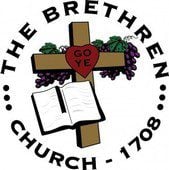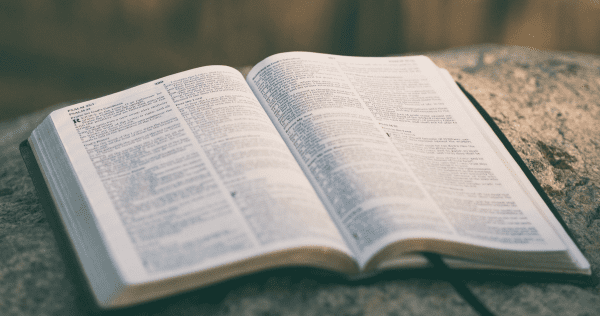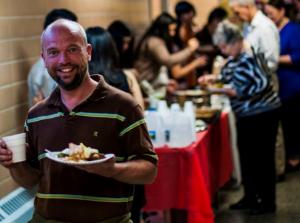The Bible is full of inspiring accounts of actual historical events. Which are five of the greatest Old Testament Bible stories? What one would you include?
The Fiery Furnace
Daniel 3:11-12 “King Nebuchadnezzar made a decree that “whoever does not fall down and worship shall be cast into a burning fiery furnace. There are certain Jews whom you have appointed over the affairs of the province of Babylon: Shadrach, Meshach, and Abednego. These men, O king, pay no attention to you; they do not serve your gods or worship the golden image that you have set up.”
Daniel 3:13-15 “Then Nebuchadnezzar in furious rage commanded that Shadrach, Meshach, and Abednego be brought. So they brought these men before the king. Nebuchadnezzar answered and said to them, “Is it true, O Shadrach, Meshach, and Abednego, that you do not serve my gods or worship the golden image that I have set up? Now if you are ready when you hear the sound of the horn, pipe, lyre, trigon, harp, bagpipe, and every kind of music, to fall down and worship the image that I have made, well and good. But if you do not worship, you shall immediately be cast into a burning fiery furnace. And who is the god who will deliver you out of my hands?”
Listen to these brave men who would rather obey God than a pagan king in Daniel 3:16-18 “Shadrach, Meshach, and Abednego answered and said to the king, “O Nebuchadnezzar, we have no need to answer you in this matter. If this be so, our God whom we serve is able to deliver us from the burning fiery furnace, and he will deliver us out of your hand, O king. But if not, be it known to you, O king, that we will not serve your gods or worship the golden image that you have set up.” Can you imagine that? They told the king who had the power of life or death in his hand, “we have no need to answer you in this matter. If this be so, our God whom we serve is able to deliver us from the burning fiery furnace” but if not we will still “not serve your gods or worship the golden image that you have set up.”
King Nebuchadnezzar threw them into the fiery furnace but he saw that they were not “hurt; and the appearance of the fourth is like a son of the gods” (Dan 3:25). When these men were unharmed the king noticed that “The hair of their heads was not singed, their cloaks were not harmed, and no smell of fire had come upon them. Nebuchadnezzar answered and said, “Blessed be the God of Shadrach, Meshach, and Abednego, who has sent his angel and delivered his servants, who trusted in him, and set aside the king’s command, and yielded up their bodies rather than serve and worship any god except their own God” (Dan 3:27-28). The lesson here is that we must obey God over man and not fear those who can kill the body but fear Him who has power to kill both body and soul (Matt 10:28). We must trust God, obey Him no matter what, and leave the consequences up to Him.
God verses Baal
One of the most remarkable stories in the Bible is where Elijah is outnumber 450 to one in the contest to see who is the true God and who are no gods at all. In 1 Kings 18:19 we see Elijah saying to wicked king Ahab, “send and gather all Israel to me at Mount Carmel, and the 450 prophets of Baal and the 400 prophets of Asherah, who eat at Jezebel’s table.” When it came to these pagan priests petition Baal to consume the sacrifice they called upon his name “from morning until noon, saying, “O Baal, answer us!” But there was no voice, and no one answered” (1 King 18:26) even till the time of the evening sacrifice and then Elijah mocked their false god by saying maybe “he is relieving himself, or he is on a journey, or perhaps he is asleep and must be awakened” ((1 King 18:27). Then it was Elijah’s turn. He requested that they “Fill four jars with water and pour it on the burnt offering and on the wood.” And he said, “Do it a second time.” And they did it a second time. And he said, “Do it a third time.” And they did it a third time. And the water ran around the altar and filled the trench also with water” (1 King 18:34-35). Then, after a brief prayer by Elijah, “the fire of the Lord fell and consumed the burnt offering and the wood and the stones and the dust, and licked up the water that was in the trench” (1 King 18:38). The lesson here is that when we pray according to God’s will and pray for His glory to be displayed, God will answer the prayer and He will be shown to be strong and He will glorify Himself.
Daniel in the Lion’s Den
The officials in King Darius’ government were extremely jealous of Daniel and so they schemed to trap Daniel and force him to break the new decree that “whoever makes petition to any god or man for thirty days, except to you, O king, shall be cast into the den of lions” (Dan 6:7). What does Daniel immediately do? Daniel “went to his house where he had windows in his upper chamber open toward Jerusalem. He got down on his knees three times a day and prayed and gave thanks before his God, as he had done previously” (Dan 6:10). The king greatly favored Daniel but he was bound by his own decree and so “the king commanded, and Daniel was brought and cast into the den of lions. The king declared to Daniel, “May your God, whom you serve continually, deliver you!” And a stone was brought and laid on the mouth of the den, and the king sealed it with his own signet and with the signet of his lords, that nothing might be changed concerning Daniel. Then the king went to his palace and spent the night fasting; no diversions were brought to him, and sleep fled from him” (Dan 6:16-18). Notice that the king sought to have Daniel’s life spared and hoped that his God would save him. The king even spent the night fasting for him. In the morning, upon finding Daniel still alive, “the king was exceedingly glad, and commanded that Daniel be taken up out of the den. So Daniel was taken up out of the den, and no kind of harm was found on him, because he had trusted in his God” (Dan 6:23) then “the king commanded, and those men who had maliciously accused Daniel were brought and cast into the den of lions—they, their children, and their wives. And before they reached the bottom of the den, the lions overpowered them and broke all their bones in pieces” (Dan 6:24). The lesson here is that even if you have to suffer to the point of potentially losing your life for righteousness sake, God will deliver you…even if it’s not in this life. Trust God, obey Him, and in time, things will be in your favor because “we know that for those who love God all things work together for good for those who are called according to his purpose” (Rom 8:28).
The Great Fish Swallows Jonah
Jonah was sent to preach repentance to the great city-state of Nineveh but this nation was Israel’s arch enemy. He ran from God’s will but soon discovered that you cannot run nor can you hide from God. He is everywhere at all times and it is fruitless to run away from His will. God finally had to force Jonah to humble himself and so when he requested to be cast off a ship that was in danger of perishing, the men threw him overboard. Jonah must have sought death because he could have repented at that time and confessed his sin to God but Jonah still resisted and so when they cast him into a certain death in the sea, “the Lord had [already] appointed a great fish to swallow up Jonah. And Jonah was in the belly of the fish three days and three nights” (Jonah 1:17). For three days and three nights, Jonah “called out to the Lord, out of my distress, and he answered me; out of the belly of Sheol I cried, and you heard my voice” (Jonah 2:1). Then, “the Lord spoke to the fish, and it vomited Jonah out upon the dry land” (Jonah 2:10).
Once more, God commanded Jonah to go to Nineveh and tell them to repent or God would destroy the city/nation. When Nineveh repented, God relented from His plan to destroy them but Jonah was angry at this. Why? Imagine a Jew in the 1940’s coming to the city of Berlin and preaching repentance and forgiveness. How hard would that have been for a Jew, who had seen millions of his brothers and sisters murdered, to try and save them, and if God finally did spare the Nazi’s, maybe you would know how Jonah felt. This may be why Jesus tells us to love for our enemies and pray for those who persecute us (Matt 5:44) because we are never more like God than when we pray for those who hate us and are our enemies. This is how God loves because it was “while we were [still] God’s enemies, we were reconciled to him through the death of his Son” (Rom 5:10) and “While we were still sinners, Christ died for us” (Rom 5:8). This also shows that God as Creator has full control and access to all of nature, including the storms, the beasts of the sea, and man himself.
The First Passover
When God was forcing Pharaoh to let His people go, He finally had to resort to the death of all the firstborn that were in Egypt, from man to beast. That was the very first Passover the night the Angel of the Lord passed over those who put the blood of a lamb on the doorposts. The lamb naturally represents Jesus, the perfect, sinless Savior. Thank about that a lamb. Has a lamb ever sinned? No. Was a lamb ever guilty of anything? Of course not. Did a lamb always do what God intended a lamb to do? Yes. That is why a lamb was the best symbol of a sacrifice for sins and Jesus as the Lamb of God took away the sins of the world. The old sacrifices just covered sin but never took them away (Heb 10:4, 11) but Christ’s took them away permanently (Heb 10:12).
Imagine how frightening this night must have been, even for the Israelites. They must have heard screams of the Egyptians; the grieving parents, brothers, sisters, uncles, and even slave owners. One after another died as the night wore on but now I want you to imagine the children. They must have been terrified. How often must their parents have reminded them that death has “passed over” them because of the lambs blood applied to their lintels and the two doorposts? They had no need to fear because God had promised to keep them safe. By death passing them over, and only due to the death of a lamb and the lamb’s blood, they could see how God, with a mighty hand, was bringing them out of Egypt. This is the longest national holiday or festival observation that is known to exist and it is one of the most important in helping Israel keep its identity as a people of God and as a nation. The obvious lesson is that God hates sin and sin requires a payment in blood. God never takes sin lightly and the representative of the Passover Lamb and the Lamb of God cannot be lost. The Lamb of God shed His blood for the remission of our sins and eternal death passed us over, once and for all.
Conclusion
What is your favorite story in the Old Testament? It was very difficult in choosing only five. Each of these accounts was actual historical events that took place in time and space and were given to us as examples. The Bible is unlike any other literature from other religions. It gives the full story, warts and all, and does not hold back the sins and faults of the characters in the Bible. One thing is for sure; if we fail to learn from history, we are bound to repeat it and if there is any lesson from history it is that we don’t learn from it.
Another Reading on Patheos to Check Out: What Did Jesus Really Look Like: A Look at the Bible Facts
 Article by Jack Wellman
Article by Jack Wellman
Jack Wellman is Pastor of the Mulvane Brethren church in Mulvane Kansas. Jack is also the Senior Writer at What Christians Want To Know whose mission is to equip, encourage, and energize Christians and to address questions about the believer’s daily walk with God and the Bible. You can follow Jack on Google Plus or check out his book Blind Chance or Intelligent Design available on Amazon















